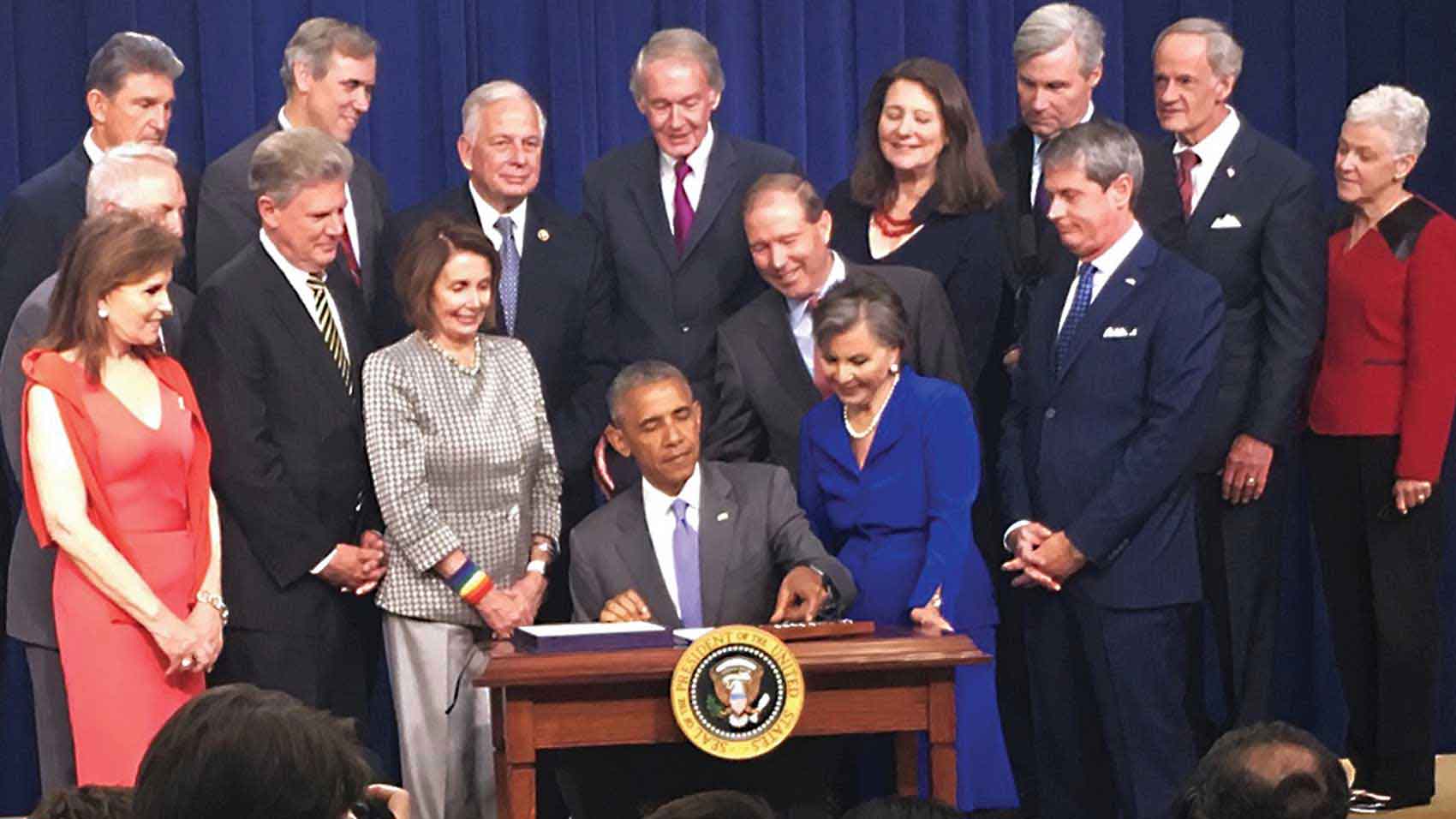Advocating for Chemical and Household Safety: SC Johnson Helps Drive TSCA Reform in the United States
It’s a commitment we make from our family to yours: We’ll fight for what’s right.

Reforming TSCA: Raising Standards of Chemical Safety
In the United States, until 2016, the country’s Toxic Substances Control Act – commonly referred to as TSCA – had not been substantively amended since its enactment in 1976. That was a 40-year gap that could have put both families and businesses at risk.
To help create change, during the 2010s, we worked with lawmakers in both parties to develop responsible and workable improvements to TSCA and chemical safety regulation. The goal was to garner broad public and industry support, and help elevate the U.S. as a global leader in chemical management and policy.
The modernization of TSCA raises the standard for all companies and can help provide the public with confidence that the products they use in their homes are safe for their intended uses.
Fisk Johnson, Chairman and CEO of SC Johnson
Teaming Up with Environmental Advocates and Leaders
In 2011, Kelly Semrau, Senior Vice President – Global Corporate Affairs, Communication and Sustainability for SC Johnson, testified on behalf of the company before the U.S. Senate Environment and Public Works Committee about the need for modernization of U.S. Chemical legislation.
We then worked to help build bipartisan support for new legislation, meeting with numerous lawmakers and their staffs in both political parties. This advocacy helped ensure that a majority of the U.S. Senate became co-sponsors of the Frank R. Lautenberg Chemical Safety for the 21st Century Act.
We also partnered with the non-governmental organization Environmental Defense Fund to convey our shared support for strengthening TSCA. We believe this was important to demonstrate that the downstream chemical industry and the environmental community can come together on middle-ground solutions for federal chemical management.
The legislative changes were ultimately approved by the House in May 2016, and signed into law by U.S. President Barack Obama in June.
The passage of the Lautenberg Act was a watershed moment for product safety in the U.S.
As our Chairman and CEO Fisk Johnson said at the time, “This legislation is a win for families and I am thrilled to see it finally approved. The modernization of TSCA raises the standard for all companies and can help provide the public with confidence that the products they use in their homes are safe for their intended uses.”
U.S. President Barack Obama invited the company to attend the White House signing ceremony in June, at which time he singled out SC Johnson for leadership in championing this reform.
“I’m absolutely confident that we can regulate toxic chemicals in a way that’s both good for our families and, ultimately, good for business and our economy, because nobody can innovate better than folks here in this country and our businesses,” said President Obama.
“We’ve got a lot of industry leaders here today who’ve pushed hard for this law, and I want to give them credit, from the American Chemistry Council to SC Johnson, because they know that it gives them the certainty they need to keep out-innovating and out-competing companies from other parts of the world.”
A New Era in Chemical Regulation and Product Safety
As part of the TSCA reform, for the first time, the U.S. Environmental Protection Agency is required to systematically prioritize all chemicals currently in commerce for safety evaluations.
Other key reforms to this legislation include:
- Requiring the EPA to make an affirmative safety determination before a new chemical can be brought to market
- Promoting greater transparency in the TSCA program by reforming the way in which confidential business information is protected and shared;
- Promoting application of a uniform federal chemical management program through limited and reasonable preemption of state regulatory authority;
- Providing EPA with adequate resources, through fees on industry, to help defray the costs of administering a revamped TSCA program.
We care about the safety of chemicals, because we care about the people who use them and the planet they affect. We’ll keep working to support legislation around the world that helps protect families and increase confidence in chemical safety.